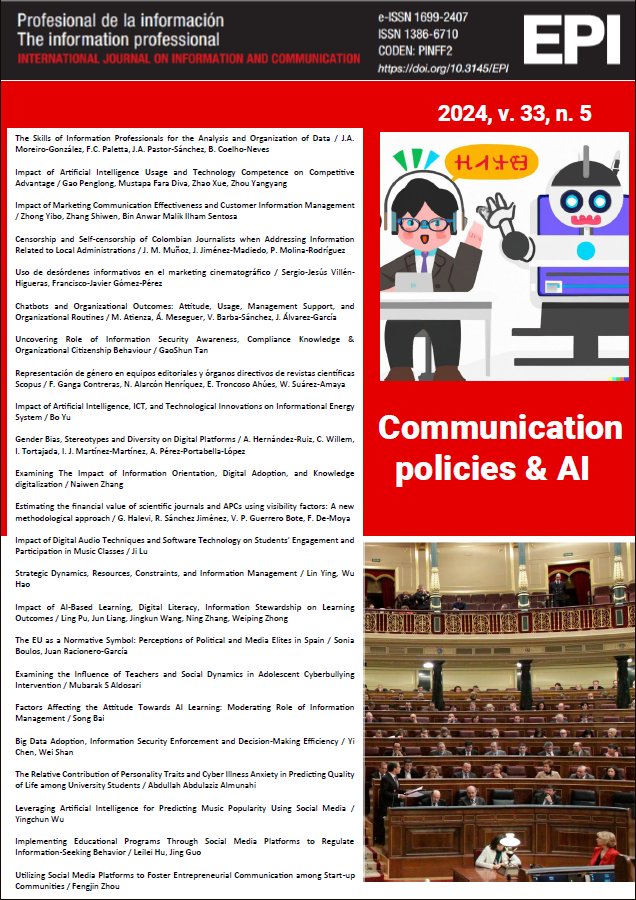Big Data Adoption, Information Security Enforcement and Decision-Making Efficiency
DOI:
https://doi.org/10.3145/epi.2024.ene.0519Keywords:
Information Security Enforcement, Big Data Adoption, Decision-Making Efficiency.Abstract
Information security enforcement aims to reflect the organizational practices while ensuring the confidentiality and availability of the relevant information within the organization. Such acts also help make some strategic and efficient decision-making at different levels of the organization. Moreover, by using big data technologies, organizations make decisions more efficiently by allowing them to process and analyze large amounts of information quickly. This study focused on several indicators relating to information security enforcement, big data adoption, and decision-making efficiency by collecting data from eight industries in China. The study developed a concise questionnaire using the Five point Likert scale, for which descriptive and regression analysis were applied. The study results show a significant relationship between information security enforcement, big data adoption and decision-making efficiency. Additionally, the study results revealed the reliability and monitoring of such initiatives like whistleblowing programs, disciplinary employees for security violations, quick investigations, and accountability for infractions, as key indicators of information security enforcement, which also cause an improvement in the decision-making efficiency of the targeted industries. The results further suggest policy implications and recommendations to improve decision-making using information security enforcement and extensive data adoption. A few limitations also discuss the future directions.
Downloads
Downloads
Published
How to Cite
Issue
Section
License
Copyright (c) 2025 Profesional de la información

This work is licensed under a Creative Commons Attribution 4.0 International License.
Dissemination conditions of the articles once they are published
Authors can freely disseminate their articles on websites, social networks and repositories
However, the following conditions must be respected:
- Only the editorial version should be made public. Please do not publish preprints, postprints or proofs.
- Along with this copy, a specific mention of the publication in which the text has appeared must be included, also adding a clickable link to the URL: http://www.profesionaldelainformacion.com
- Only the final editorial version should be made public. Please do not publish preprints, postprints or proofs.
- Along with that copy, a specific mention of the publication in which the text has appeared must be included, also adding a clickable link to the URL: http://revista.profesionaldelainformacion.com
Profesional de la información journal offers the articles in open access with a Creative Commons BY license.




